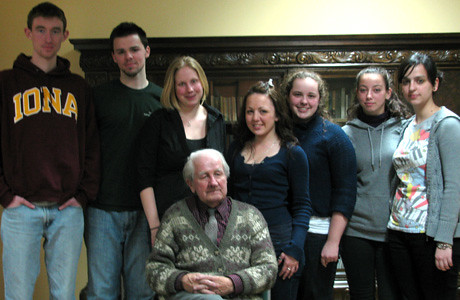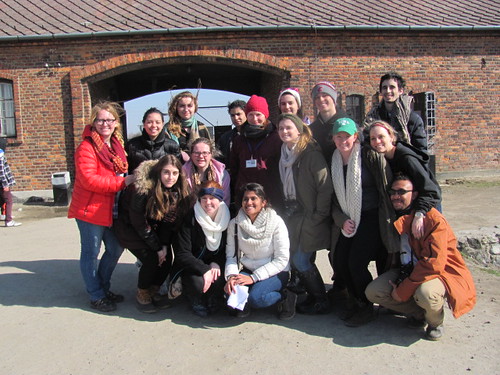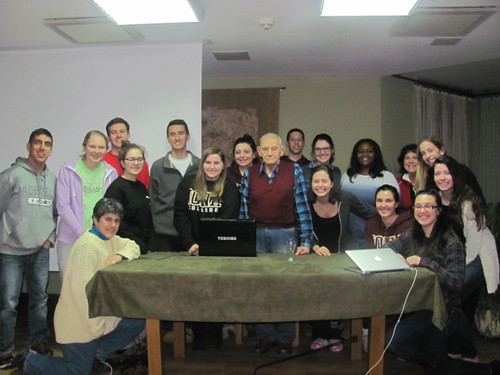Keeping the memory of the Shoah alive is vital to our future, for "those who cannot remember the past are condemned to repeat it." Hearing the testimonies of those who survived the Shoah is one way to keep the memory alive, although this is becoming a difficult task as time goes by and survivors eventually pass away. That is why it is important as an educator to pass this information along to the next generation of scholars. I am grateful that I had the opportunity to hear the stories of several survivors of the Holocaust since January, including the survivor we met with at the JCC in Kraków. I was able to record most of these testimonies and plan on one day transcribing these memories so that they can be both heard and read. These firsthand accounts give you a small glimpse into a bloody period in history where men, women, and children were slaughtered by the millions.
Education about the Holocaust is also of the utmost importance, especially considering the results of the survey reported by The New York Times. While in Poland we attended two classes at Auschwitz I, as well as lectures at the Centre for Dialogue and Prayer in Oświęcim (where we stayed during our trip). One lecture we attended at Auschwitz that I found very interesting was taught by Teresa Wontor-Cichy and titled “Christian Clergy and Religious Life at Auschwitz”. Many do not realize that while the majority of people killed during the Holocaust were Jewish, Christians died as well. Such is the case with Saint Maximilian Kolbe, who offered to die in place of a stranger when that person was selected for death. After the lecture, Professor Wontor-Cichy showed us the area where Maximilian Kolbe volunteered to die, making me wonder if I could have done what he did had I been in his shoes. Effective Holocaust education is a topic that will need to be addressed sooner than later and hopefully more people become aware of the facts. As a History major, I had decided to focus on U.S. history as my specialty but after visiting Poland and seeing those death camps, I have decided to focus on Holocaust history. My classmates and I were given an opportunity to experience something that not many people will have the chance to experience. It is our obligation to help keep the memory of the Shoah alive and educate those who are unaware of what occurred during the Holocaust so that it may never happen again. Remember: we must never forget.

|

|
| Belongings plundered from the victims of Auschwitz by the SS, found after the liberation of the camp. |



















